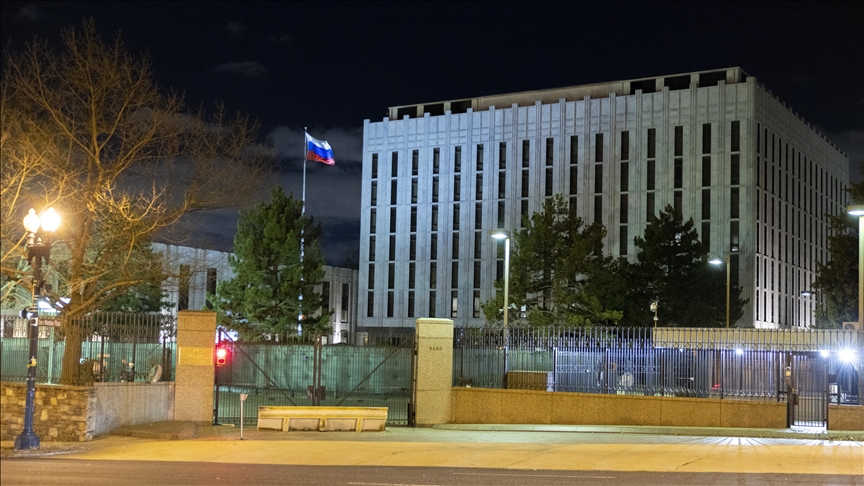Russian Embassy Warns Citizens Against Travel to Iran
In recent weeks, the Russian Embassy in Tehran issued an official warning urging its citizens to reconsider or postpone travel to Iran due to increasing safety concerns. This move has raised alarm within both the Russian and international communities, highlighting the growing tensions and evolving geopolitical dynamics in the region. While the embassy did not elaborate on specific incidents, the warning has drawn attention to the ongoing instability in Iran, which has been experiencing political and social unrest, as well as the heightened risks to foreign nationals in the country.
1. Background of the Warning
The Russian Embassy’s travel advisory comes amidst a turbulent period in Iran’s political landscape. In recent months, the country has faced a wave of anti-government protests, crackdowns on civil liberties, and a volatile economic situation. These protests, which initially began over the death of a young woman in police custody, have morphed into broader anti-government demonstrations, calling for regime change and the end of strict governmental controls. In response, the Iranian government has implemented harsher measures, including mass arrests, violent suppression, and restrictions on freedom of speech.
2. The Political and Social Situation in Iran
Iran has long been a country marked by political repression, but the situation has worsened in recent years. The death of 22-year-old Mahsa Amini in September 2022 while in the custody of the morality police sparked nationwide protests that quickly spread across major cities. The protests have been fueled by long-standing frustrations with the government’s restrictive policies, especially regarding women’s rights and freedom of expression.
The crackdown on these protests has been brutal, with hundreds of demonstrators killed and thousands arrested. The ongoing repression has created a climate of fear and uncertainty, not only for Iranian citizens but also for foreigners living or traveling in the country. The Russian Embassy’s advisory is an indication that the situation has become increasingly unpredictable, and the safety of foreign nationals, including tourists, is at risk.
3. Implications for Russian Citizens
For Russian citizens, the warning from the embassy is particularly significant. Russia and Iran have long had strong diplomatic and economic ties, particularly in the fields of energy, defense, and regional security. Despite this, the Russian government has shown concern about its citizens’ safety in the region, indicating that the situation is becoming increasingly dangerous. Russian travelers, many of whom may have previously visited Iran for business, tourism, or cultural exchange, are now advised to reconsider their trips due to the risks involved.
Russian tourists may face several dangers while in Iran. Protests or demonstrations can quickly escalate into violence, and foreign nationals may be targeted by security forces. In addition, political arrests or detentions of foreign nationals have been reported, with some individuals being accused of espionage or other politically charged offenses. These risks are compounded by the volatile political atmosphere in Iran, where dissent is not tolerated and the government frequently arrests those who criticize its policies, including foreigners who may be seen as sympathetic to opposition movements.
4. The Broader Context of Geopolitical Tensions
The warning issued by the Russian Embassy must also be understood in the broader context of the geopolitical situation. As tensions escalate between Iran and the West, particularly the United States, the risk of foreign nationals being caught in the crossfire increases. The situation is further complicated by Russia’s own strained relationship with the West, particularly following its invasion of Ukraine. With both Russia and Iran facing increasing international isolation, the possibility of retaliatory actions against foreign nationals in either country cannot be ruled out.
5. The Role of Travel Advisories
Travel advisories are often issued by embassies to alert citizens to potential risks in foreign countries. They can range from warnings about natural disasters to more serious threats such as armed conflict or civil unrest. In the case of Iran, the Russian Embassy’s warning is a reflection of the current instability and the unpredictability of the situation. Travel advisories are crucial tools for guiding travelers away from potentially dangerous areas, but they also highlight the fragility of diplomatic relations and the complex nature of international politics.
Conclusion
The Russian Embassy’s warning against travel to Iran underscores the growing concerns over the safety of foreign nationals in the country, particularly amidst ongoing political unrest and regional instability. For Russian citizens, the message is clear: traveling to Iran at this time carries significant risks. Whether due to violent crackdowns on protests, rising geopolitical tensions, or the risk of being caught in an international conflict, travelers are urged to consider their safety before embarking on any trip to Iran. This advisory also serves as a reminder of the importance of staying informed about the political and social situation in foreign countries, especially in regions that are prone to instability.





